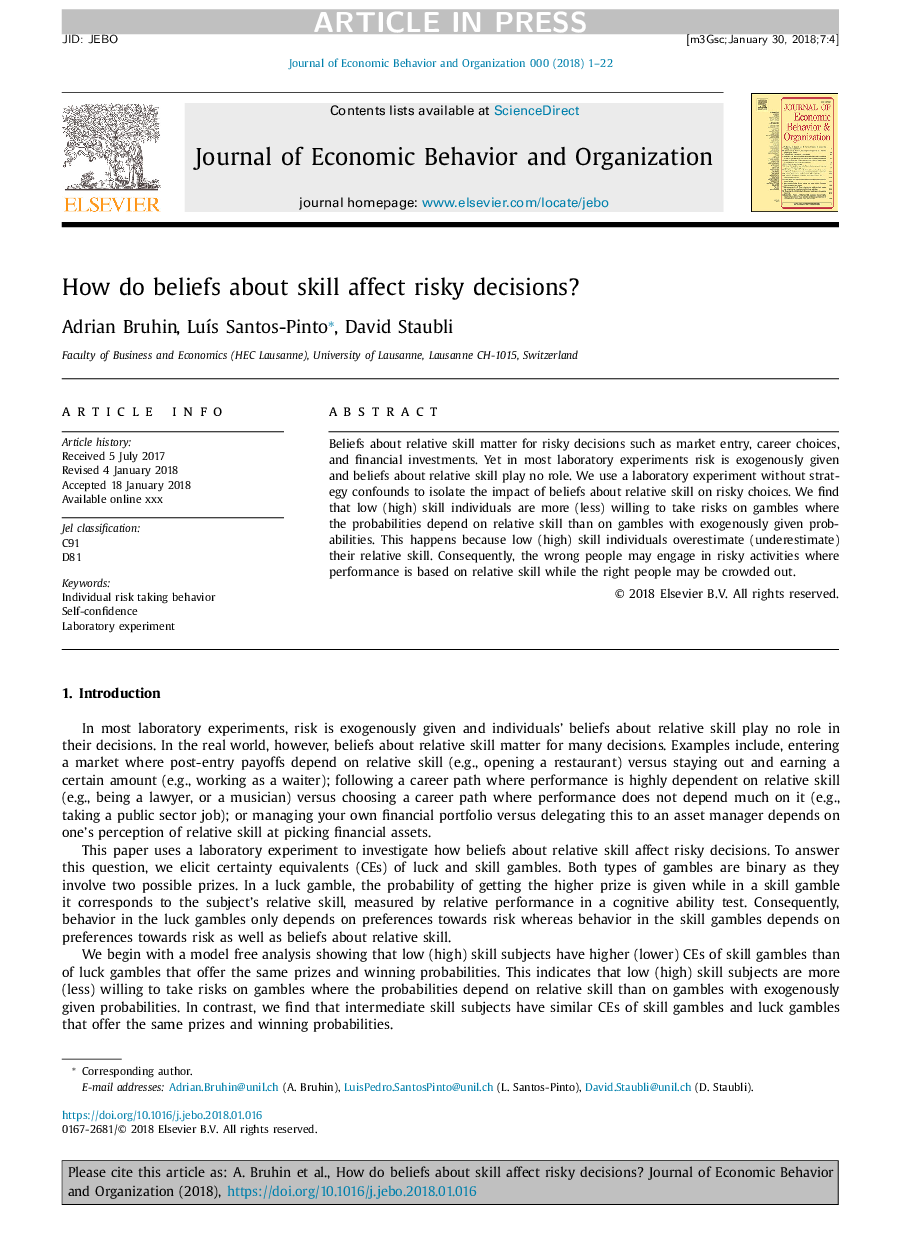| Article ID | Journal | Published Year | Pages | File Type |
|---|---|---|---|---|
| 7242545 | Journal of Economic Behavior & Organization | 2018 | 22 Pages |
Abstract
Beliefs about relative skill matter for risky decisions such as market entry, career choices, and financial investments. Yet in most laboratory experiments risk is exogenously given and beliefs about relative skill play no role. We use a laboratory experiment without strategy confounds to isolate the impact of beliefs about relative skill on risky choices. We find that low (high) skill individuals are more (less) willing to take risks on gambles where the probabilities depend on relative skill than on gambles with exogenously given probabilities. This happens because low (high) skill individuals overestimate (underestimate) their relative skill. Consequently, the wrong people may engage in risky activities where performance is based on relative skill while the right people may be crowded out.
Related Topics
Social Sciences and Humanities
Economics, Econometrics and Finance
Economics and Econometrics
Authors
Adrian Bruhin, LuÃs Santos-Pinto, David Staubli,
